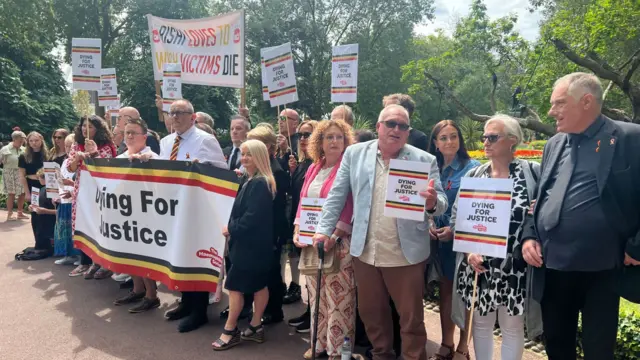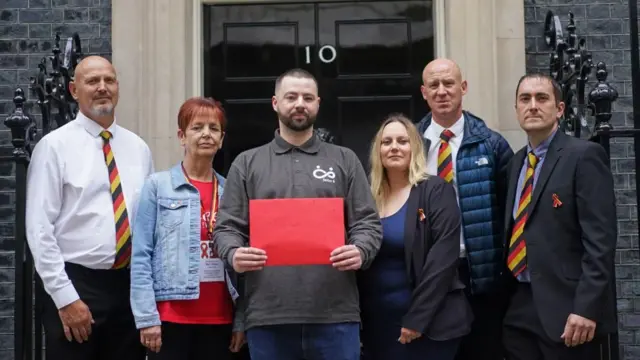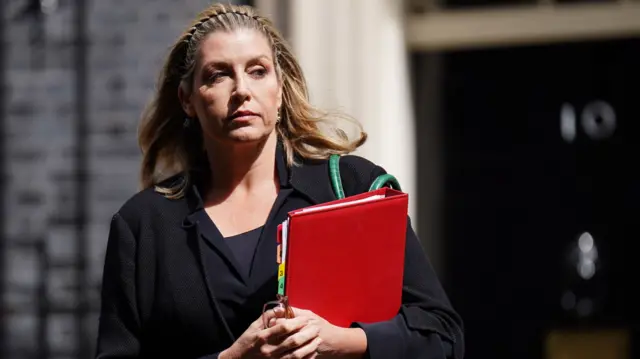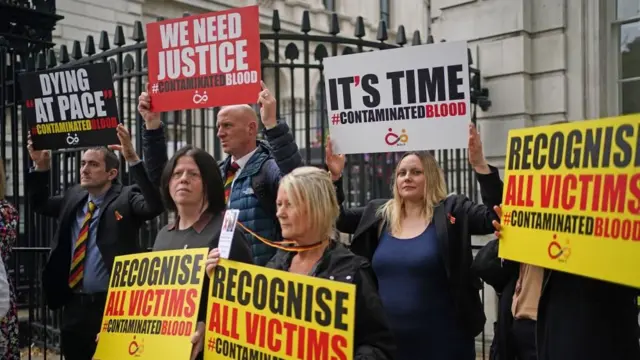Letters dealt with by Treasury officials, not me - Sunakpublished at 14:19 BST 26 July 2023
Sunak continues, saying "this is not just about historic wrongs".
He adds that reading the testimonies of those infected and affected by the scandal was "moving for me".
I'm pleased to be able to be here, to contribute to that important work, he tells the inquiry.
Turning to Mordaunt's letter, he says he did not see it personally at the time, and that it was instead dealt with by officials at the Treasury.





